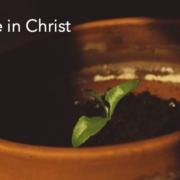Bulletin for 11-6-22
Birthdays and Anniversaries
11-8 Luke Weeks
11-9 Dan Anthony
Prayer requests:
Rachel Prater, Dena’s cousin, Rodney’s, wife. Bicycle accident. Brain trauma, back injury. Prayers please.
Chloe Birdwell, relative of the Weeks’s, great improvement, is home now, doing outpatient therapy here in Dallas. Keep praying, please!
Bobbie Taylor, Surgery went well, recovering at Sheree and Clay’s house.
Paul Tyler has a bad sort Parkinson’s. Got stem cell treatments. Pray for their success.
Tonita, Paul’s friend, heart valve replacement needed
J R Medellin, Tiffany’s (Chance) husband, still doing well. Vanessea is doing well after her surgery.
Shirley Weeks, Steve’s mom, continues to have trouble.
Sarah, Chris Girvin’s sister, on hospice care
Robert and Sue Waller, health issues
Darla Nitti, Wendi’s mom, not doing well.
Leta, has a recurring cancer, prayer request from her granddaughter via our website.
Tammy Jones, Weeks’ neighbor, kidney failure/dialysis
Remember Luis in his mission/church planting in Poland.
Article:
Trusting in God to provide
The Israelites, as the people of God, were to observe days of rest that were called ‘Sabbaths’. They worked for six days and then there was a day of rest. The rest was not just for the Israelites but also applied to those who worked for them and even to their animals. But Sabbaths didn’t stop there.
“Speak to the Israelites and say to them: ‘When you enter the land I am going to give you, the land itself must observe a sabbath to the Lord. For six years sow your fields, and for six years prune your vineyards and gather their crops. But in the seventh year the land is to have a year of sabbath rest, a sabbath to the Lord. Do not sow your fields or prune your vineyards. Do not reap what grows of itself or harvest the grapes of your untended vines. The land is to have a year of rest.’” (Leviticus 25:2-5 NIV)
We know it is good farming practice to allow fields to lie ‘fallow’ for a year without planting crops. This allows the land to recover nutrients as well as store organic material, retain moisture and even disrupts the life cycles of pests (because what they normally feed on will not be present). Although science can teach us this today, God put this in his law to his people. It was good for the land, but it also taught the people to trust in God.
But if no crops were planted for a year, how would the people survive? Although they weren’t to touch any of their cultivated crops that came up during that year, anything the land produced without the help of people could be eaten. They had to trust God that there would be sufficient food for all the people as well as their livestock and the wild animals. This showed the people that God was the ultimate provider; even though people could assist through planting and cultivating crops all they had came ultimately from God. But that wasn’t all.
“Count seven sabbath years – seven times seven years – so that the seven sabbath years amount to a period of forty-nine years…The fiftieth year shall be a jubilee for you; do not sow and do not reap what grows of itself or harvest the untended vines. For it is a jubilee and is to be holy for you; eat only what is taken directly from the fields.” (Leviticus 25:8-12)
If you have calculated this correctly, with the Sabbath Year coming every seven years, year 49 would then be a Sabbath Year. Year 50 was to be a Jubilee year, during which many things happened, but as far as the land was concerned it was another Sabbath Year. Two years, back to back, with no planting. How could the people survive? They needed to trust in God! They had to trust that God would supply enough produce from the land to not only feed them one year but for two years.
You might well ask if the people were able to do this. It would seem that initially they did obey God. But the number of years they spent in captivity in Babylon was directly connected to the number of years they had not observed the Sabbath years.
“The land enjoyed its sabbath rests; all the time of its desolation it rested, until the seventy years were completed in fulfilment of the word of the Lord spoken by Jeremiah.” (2 Chronicles 36:21)
The people spent seventy years in Babylonian captivity. God chose this number to allow the land to enjoy the Sabbath rests it had missed, and there had been seventy of them. This means that there had been 490 years since they had observed a Sabbath Year.
What can we learn from this? One application is that time does not erase sin. Just because the people forgot, God didn’t.
We need to apply this in our lives and turn from our sins before we forget that we have sinned, realising that God doesn’t forget our sins until we have turned away from them and asked for forgiveness.
Jon Galloway, link to original article








